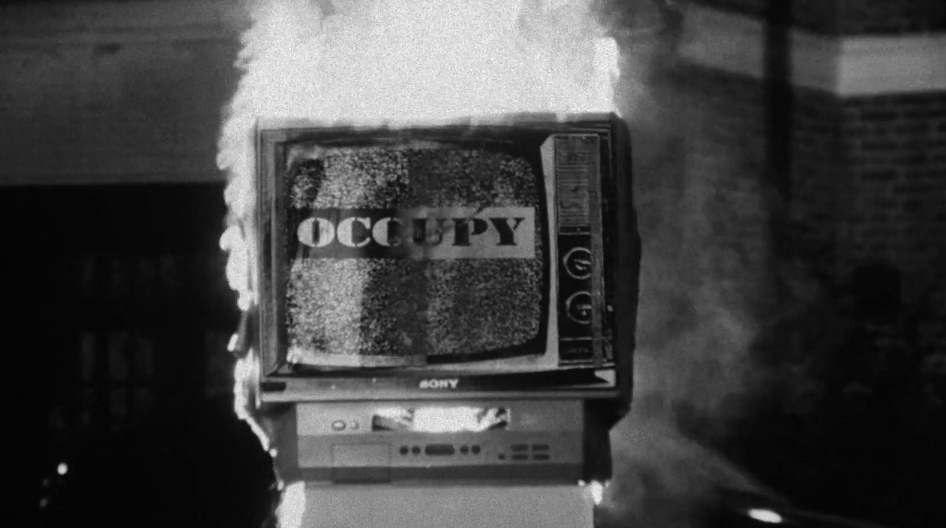Die diesjährige Fantastika Konferenz ("Performing Fantastika") wurde von 27.-29. April 2017 in Lancaster, GB, abgehalten. Christina Scholz hielt dort einen Vortrag mit dem Titel "Mirza, Butler & Miéville's Deep State: Hybrid Art Forms as Theatre of the Future and/or the Future of Theatre?".
Abstract:
Karen Mirza and Brad Butler's 2012 film project Deep State, scripted by China Miéville, tells the story of a time traveller who passes through holes in conventional history created by the irruptive power of riots. Formally it oscillates between cinema and drama in that it incorporates archive footage as well as theatrical elements. The collage-style editing technique establishes a relationship between non-fiction, fiction and semi-fiction and can also be read as a deliberate nod to another seminal experimental time travel film, Chris Marker's La Jetée from 1962.
One could argue that by subtracting the dynamic aspect and the unrepeatability of a dramatic performance, the theatrical scenes lose much of their immediacy and impact. However, by employing elements from Augusto Boal’s concept of the Theatre of the Oppressed, Mirza and Butler succeed in evading any one-sided, ideologically motivated representation of characters. Instead they foreground the human factor. This facilitates the audience's empathy without blatantly forcing identification with the characters and motivates them to critically engage with and question action ostensibly taken in the name of freedom and democracy – culminating in a torture scene employing direct quotes from the infamous leaked CIA "torture memos" of 2002.
Mirza and Butler state that their goal was to make a film about how to shift political language by implementing the concept of the Theatre of the Oppressed – articulating oppression, making images with one’s body, with collective bodies, and working from the body to speech. These elements constitute and reinforce the character of the language teacher who takes the place of the "joker" (in Boal's terminology), simultaneously struggling to speak and attempting to teach, fighting without using physical violence. They also facilitate easy re-imagination of the film as a dramatic performance, with the archive footage (back-)projected onto the backdrop, so that the separate spaces that come together through editing in the film are actually brought together in the same physical space on stage.
The language teacher's pedagogy is both a physical and verbal move away from fossilised conceptions of resistance into new, unimagined possibilities. Hopefully it may also spawn a renewed discussion of film and theatre as related, if different, media and of hybrid art forms and cross-overs as fecund ground for new developments.
